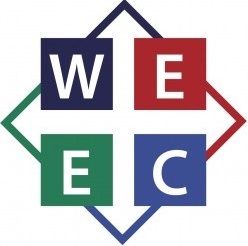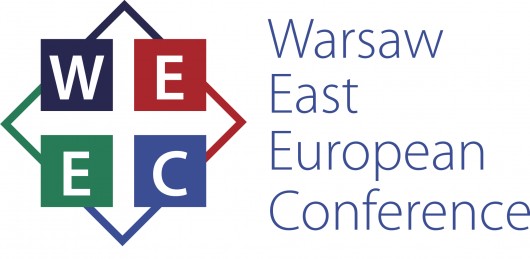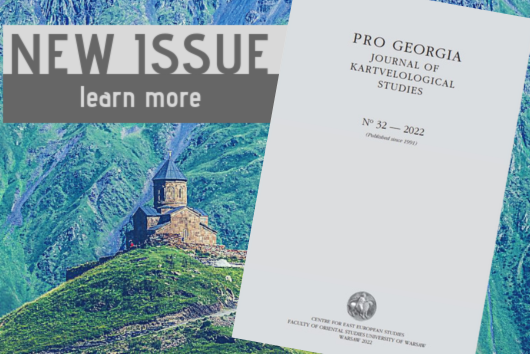The Emergence of New States in Eastern Europe after the First World War: Lessons for all of Europe
The Emergence of New States in Eastern Europe after the First World War: Lessons for all of Europe
Debate and Exhibition
20.03.2019
17:00-20:00
The Ball Room of the Tyszkiewicz-Potocki Palace
Krakowskie Przedmieście 32
The University of Warsaw
Hosted by:
WiseEuropa, Centre for East European Studies, the University of Warsaw
The year of 1918 was a crucial point in the history of Europe. Its importance does not only stem from the end of the First World War, but also from the establishment of new states. Eastern Europe was particularly an arena where many new states emerged after the dissolution of Tsarist Russia. The above-mentioned process was correlated with the outcome of the First World War (the defeat of the Central Powers on the Western Front and their victory on the Eastern Front against the Tsarist Russia resulting in imposing their protectorate over Eastern Europe) but simultaneously it was influenced by the 1917 Bolshevik Revolution originating from a structural crisis of Russia. In fact, the process started before the end of the First World War with the declaration of independence of Finland in December 1917, which was internationally accepted in early 1918. In that year, Estonia, Latvia, Lithuania and Poland also gained and manage to defend their independence. Unfortunately, some other states, after having proclaimed their independence in 1918 and gained, at least, partial international recognition (for example, Azerbaijan, Armenia, Georgia, and Ukraine), were destroyed by the Bolsheviks in the period between 1920 and 1921. Many more of those attempts to become either independent or gain a certain level of autonomy were noticed within Russia, in the final period of the collapsing Russian Empire, but all of them were crushed by the Bolsheviks.
Intriguingly, the vast majority of the aforementioned states, at times, cooperated closely between themselves against a range of common enemies (mostly, the Bolsheviks), however, occasionally, they fought fiercely against each other. The legacy of nation-building processes, taking place in the period of 1917-21 in the European part of the Tsarist Russia, – even when the states did not manage to survive, – occupies a key role in historical memories of those countries. The importance of this legacy originates from the fact that these states often constituted the most progressive nation-building efforts in the world. The wider context of these developments and the important interlinkages existing between them are very often unfamiliar to many Europeans today. Despite that, the state-building attempts, undertaken in Eastern Europe between 1917 and 1921, had a huge impact on the trajectory of European history. In order to increase knowledge about these processes in Europe we would like to organize a public debate gathering experts from Eastern European countries which will accompanied by the official opening of the exhibition dedicated to the subject.
Contextualising this particular academic enquiry with the events of 1918 and benefiting from methodological advantages of process-tracing, this project represents an attempt to restore (or, if necessary, build from scratch) a communicational system for sending a historical message to a wider Europe. A century after, while celebrating the Finnish, Estonian, Latvian, Lithuanian and Polish truly big anniversaries in 2017-2018, Europeans already forgot how interconnected and interlinked the 1918-bound events had been and by how much those events had affected the entire European continent as well as the international system.
Considering the above, the debate will try to respond to three key questions:
- What is the legacy of the period 1917-1921 for these countries, the region and Europe?
- How do the countries remember these crucial events today?
- What is the memory of Germany’s engagement in the Eastern Europe in the period (1917-1921)?
Programme
17:00-17:10 Welcome:
Jan Malicki, Centre for East European Studies, the University of Warsaw, Poland (TBC)
Maciej Bukowski, WiseEuropa, Poland (TBC)
17:10-17:40 Key note speaker: Frank Golczewski, the University of Hamburg, Germany
17:40-19:00 RoundTable:
Moderator: Adam Balcer, WiseEuropa, Poland
Panelists:
Ugnė Marija Andrijauskaitė, Vytautas Magnus University, Lithuania
Vineta Kleinberga, The Latvian Institute of International Affairs, Latvia,
Suvi Heikkilä, University of Turku, Finland
Vlad Alex Vernygora, Tallinn University of Technology, Estonia
19:00-20:00
Opening of the Exhibition
Opening remarks: Jacek Najder, Former Polish Ambassador to NATO, the Capital City of Warsaw








